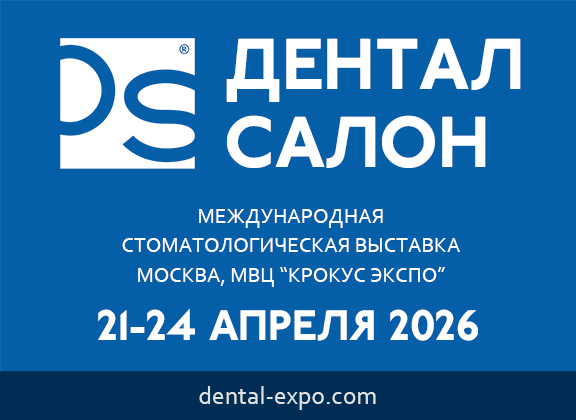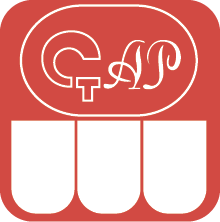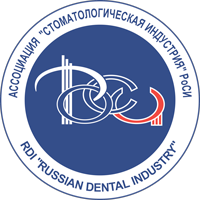DOI:
10.37988/1811-153X_2022_2_112Improvement of the protocols for the analysis of cone-beam computed tomograms of orthodontic patients
Downloads
Abstract
According to various authors, the prevalence of occlusal anomalies that are accompanied by functional and morphological disorders of the maxillary system is 24.5-37.3%. In addition, the altered facial aesthetics has a negative impact on the psychological state and social adaptation of patients. Planning orthodontic treatment requires comprehensive diagnostics, including anthropometric examination of plaster jaw models, analysis of orthopantomograms, teleroentgenograms of the skull in lateral and straight projections, computer tomograms. It is impossible to plan orthodontic treatment without an adequate assessment of the position of these teeth in the dental arch, the thickness of the alveolar ridge and the transversal dimensions of the jaws.Materials and methods.
105 patients with occlusal malocclusion were examined and underwent cone-beam computed tomographic (CBCT) examination.
Results.
We have developed the algorithm of analysis of cone-beam computed tomograms of patients, built and calculated morphometric parameters including transversal dimensions of jaws on the basis of Pennsylvania University basic methodology. The data were used to analyze the thickness of the alveolar ridge of the jaws and transversal dimensions of the jaws. According to CBCT data, the examined patients revealed a sharp thinning of vestibular cortical plates at the level of frontal teeth: in 26.6% of cases (n=28) on the lower jaw and in 34.3% of cases (n=36) on the upper jaw. Thinning of the vestibular cortical plate at the level of teeth 1.4-1.6, 2.4-2.6 was detected in 24 patients. This pattern, which can be seen in our study, corresponds to the results of other authors as well. The results obtained allowed us to determine the peculiarities in the displacement of the teeth relative to the cortical plates of the alveolar ridge. The normal ratio of jaw sizes was detected only in 33.3% of cases (n=35). According to the results of the analysis, 52 (49.5%) patients had narrowing of the maxilla, where half of the cases had ridge bone atrophy in thickness. In the remaining cases, a narrowing of the mandible was determined.
Conclusion.
Structured and standardized CBCT analysis protocols allowed us to evaluate the differences in morphometric parameters of the facial skull in orthodontic patients with various occlusal anomalies.
Key words:
cone beam computed tomography, thickness of the alveolar ridge, transversal dimensions of the jaws, anomalies of occlusionFor Citation
[1]
Drobysheva N.S., Mallaeva A.B., Petrovskaya V.V., Dibirova P.Sh., Lezhnev D.A., Drobysheva L.A. Improvement of the protocols for the analysis of cone-beam computed tomograms of orthodontic patients. Clinical Dentistry (Russia). 2022; 25 (2): 112—118. DOI: 10.37988/1811-153X_2022_2_112
References
- Zhmyrko I.N., Drobysheva N.S. Method of evaluation of the extent of skeletal forms of malocclusion. Endodontics Today. 2020; 2: 22—28. (In Russ.). eLIBRARY ID: 43326781
- Zhmyrko I.N., Drobysheva N.S., Slabkovskaya A.B., Klipa I.A., Drobyshev A.Yu. Evaluation method of the skeletal forms extent of malocclusion. Orthodontics. 2020; 1 (89): 12—20. (In Russ.). eLIBRARY ID: 48369382
- Mallaeva A.B., Drobysheva N.S. Features of the structure of the alveolar process in patients with gnatic form of mesial occlusion. Endodontics Today. 2020; 3: 15—25. (In Russ.). eLIBRARY ID: 46613237
- Mallaeva A.B., Drobisheva N.S., Petrovskaya V.V., Slabkovskava A.B., Drobishev A.Yu. Features of the structure and size of the jaws in patients with mesial occlusion. Orthodontics. 2020; 4 (92): 11—23. (In Russ.). eLIBRARY ID: 45711149
- Drobyshev A.Y., Chantyr I.V., Drobysheva N.S., Medvedev V.E., Frolova V.I., Fofanova Y.S. Psychometric evaluation of levels of anxiety and depression in adult patients with dentomaxillofacial abnormalities. Medical alphabet. 2015; 22: 39—41. (In Russ.). eLIBRARY ID: 26206068
- Drobakha K.V., Drobysheva N.S., Sviridov E.G., Drobyshev A.Y. Three-dimentional cephalometric analysis in patients with mandibular asymmetries accompanied by unilateral condylar hyperplasia. Orthodontics. 2017; 4 (80): 11—21. (In Russ.). eLIBRARY ID: 41192178
- Mallaeva A.B., Drobysheva N.S. Structural features of the temporomandibular joint in patients with gnathic mesial occlusion. Russian Journal of Dentistry. 2020; 5: 301—305. (In Russ.). eLIBRARY ID: 45156415
- Ahn J., Kim S.J., Lee J.Y., Chung C.J., Kim K.H. Transverse dental compensation in relation to sagittal and transverse skeletal discrepancies in skeletal Class III patients. Am J Orthod Dentofacial Orthop. 2017; 151 (1): 148—156. PMID: 28024769
- Gupta A., Kharbanda O.P., Sardana V., Balachandran R., Sardana H.K. A knowledge-based algorithm for automatic detection of cephalometric landmarks on CBCT images. Int J Comput Assist Radiol Surg. 2015; 10 (11): 1737—52. PMID: 25847662
- Kim H.J., Hong M., Park H.S. Analysis of dental compensation in patients with facial asymmetry using cone-beam computed tomography. Am J Orthod Dentofacial Orthop. 2019; 156 (4): 493—501. PMID: 31582121
- Sanborn R.T. Differences between the facial skeletal patterns of Class III malocclusion and normal occlusion. Angle Orthod. 1995; 25 (4): 208—222.
- Drobysheva N.S., Lezhnev D.A., Petrovskaya V.V., Batova M.A., Perova N.G., Mallaeva A.B., Kaminskiy-Dvorzhetskiy N.A., Mirzoev M.L. Cone beam computed tomography use in orthodontics. Orthodontics. 2019; 1 (85): 32—39. (In Russ.). eLIBRARY ID: 41121595
- Lezhnev D.A., Petrovskaya V.V. Modern Radiological Trends in Dentistry and Maxillofacial Surgery (Lecture). Radiology and Practice. 2019; 5 (77): 57—73. (In Russ.). eLIBRARY ID: 41209686
- Dibirova P.Sh., Drobysheva N.S., Mallaeva A.B. Justification of the use of computed tomography for the diagnosis of dental anomalies. Orthodontics. 2021; 3 (95): 49—50. (In Russ.). eLIBRARY ID: 46676789
- Slabkovskaya A.B., Kopetskiy I.S., Meskhiya N.G. Radiation diagnostics of dentoalveolar abnormalities. The current issue. Health and Education Millennium . 2017; 10: 149—153 (In Russ.). eLIBRARY ID: 29737819
- Brüllmann D., Schulze R.K. Spatial resolution in CBCT machines for dental/maxillofacial applications-what do we know today? Dentomaxillofac Radiol. 2015; 44 (1): 20140204. PMID: 25168812
- Codari M., Caffini M., Tartaglia G.M., Sforza C., Baselli G. Computer-aided cephalometric landmark annotation for CBCT data. Int J Comput Assist Radiol Surg. 2017; 12 (1): 113—121. PMID: 27358080
- Ludlow J.B., Walker C. Assessment of phantom dosimetry and image quality of i-CAT FLX cone-beam computed tomography. Am J Orthod Dentofacial Orthop. 2013; 144 (6): 802—17. PMID: 24286904
- Petrovskaya V.V., Batova M.A. Cone-beam computed tomography in analyzing anthropometric measures of maxillofacial area (lecture). Radiology and Practice. 2017; 3 (63): 54—65. (In Russ.). eLIBRARY ID: 29256776
- Campos M.J., de Souza T.S.et al. Bone mineral density in cone beam computed tomography: Only a few shades of gray. World J Radiol. 2014; 6 (8): 607—12. PMID: 25170398
- Dillenseger J.P., Matern J.F. et al. MSCT versus CBCT: evaluation of high-resolution acquisition modes for dento-maxillary and skull-base imaging. Eur Radiol. 2015; 25 (2): 505—15. PMID: 25249315
- Ding W.H., Li W., Chen F., Zhang J.F., Lv Y., Chen X.Y., Lin W.W., Fu Z., Shi J.J. Comparison of molar intrusion efficiency and bone density by CT in patients with different vertical facial morphology. J Oral Rehabil. 2015; 42 (5): 355—62. PMID: 25515652
- Kim S.J., Kim K.H., Yu H.S., Baik H.S. Dentoalveolar compensation according to skeletal discrepancy and overjet in skeletal Class III patients. Am J Orthod Dentofacial Orthop. 2014; 145 (3): 317—24. PMID: 24582023
- Young N.M., Sherathiya K., Gutierrez L., Nguyen E., Bekmezian S., Huang J.C., Hallgrímsson B., Lee J.S., Marcucio R.S. Facial surface morphology predicts variation in internal skeletal shape. Am J Orthod Dentofacial Orthop. 2016; 149 (4): 501—8. PMID: 27021454
- Uysal T., Usumez S., Memili B., Sari Z. Dental and alveolar arch widths in normal occlusion and Class III malocclusion. Angle Orthod. 2005; 75 (5): 809—13. PMID: 16279827
- Ryan K.T., Normand S.B., Robert L.V., Secchi A.G. The transverse dimension: Diagnosis and relevance to functional occlusion. RWISO Journal. 2010; 13: 208—222.
Downloads
Received
January 20, 2022
Published on
June 1, 2022










